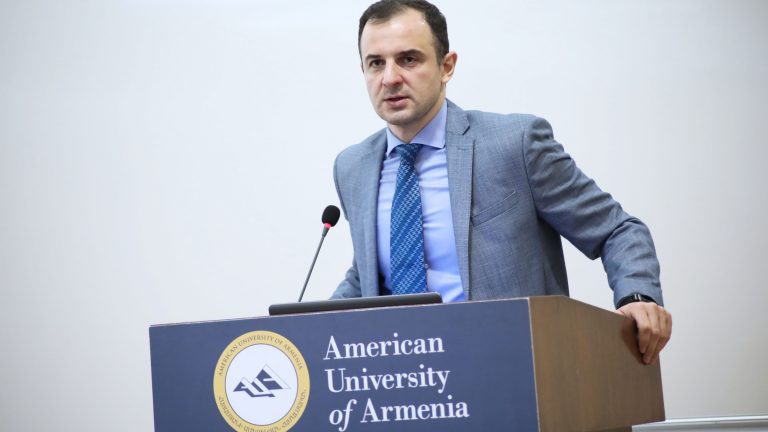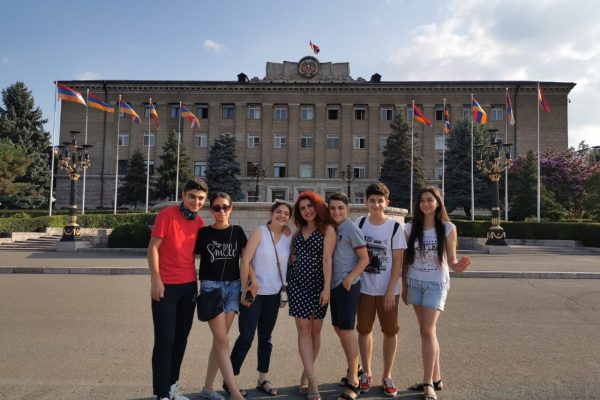Romania constitutes one of the little known cases of ethnic coexistence and political cohabitation. Some observers see the relations between the central government and ethnic groups as strained, while other experts look at the relations as a successful case of cohabitation. A country of 19.5 million people, 10.5 % of which is composed of ethnic minorities, Romania is known to be a mosaic of ethnic, religious and linguistic groups. There are around 20 officially recognized national minorities in Romania which have obtained legal status from the central government. Sizeable among the minorities are Hungarians, Germans, Ukrainians, Serbs, Croats, Roma people, Bulgarians, etc. This report aims to discuss some of the features of ethnic politics in Romania and how the EU membership has changed the policy practices of the central government.
Romania became a member of EU in 2007. Along with a number of reforms that Romania has implementation in different sectors leading to the EU membership, it had to carry out reforms in areas which regulated national minorities, too. The deriving point of reference was stipulated in the Copenhagen Criteria from 1993 which set forth conditions for the future members of the EU to respect and protect minorities. In many ways, the EU enlargement policy has created mechanisms and incentives to regulate national policies for protection of minorities. Eastern European states, in order to become members of the EU, had to carry out comprehensive reforms in different areas pertinent for economic development and prosperity of national minorities. In addition to the EU, the OSCE and the Council of Europe have also created mechanisms (the Framework convention and the European Charter) for protection of national minorities, their languages, and culture. Some EU candidate countries have opted for adaption of domestic legislation to the Copenhagen Criteria, the Framework and the Charter, while other aspiring countries created mechanisms to implement the reforms. Romania, as an EU candidate country, had to adhere some of the regulations. However, Romania’s experience with the national minorities had a number of distinct stages since the 1990s.
In the first half of the 1990s, the nationalist parties dominated the Romanian politics which resulted in adoption of several laws restricting the use of national minority languages, the use of flags of other nations, celebrations of holidays of other nations, imposing the teaching of the History of Romanians. The politics of nationalism and manipulation of minorities and fear of them played a certain role in domestic politics, especially during the elections campaigns, however, starting from the early 2000s election rhetoric on minority related issues came to play less a prominent role.
In the 2000s, the key determinants of state policy towards the national minorities went through visible transformations. Although the state eased some of the restrictions, a few national minorities kept raising concerns about the central and local administrations’ continued interference in designing the curriculum of minority schools and the school management procedures without any consultation with the minority community. However, the perspective of the EU membership and accession process have incentivized the Romanian politicians to be more open towards the reforms related to the national minorities. Following the EU regulations, the national minorities obtained more representation in national and local administration. Article 62 of the Romanian constitution regulates the conditions that national minorities need to meet in order to have a representation in the parliament. It provides opportunity to have one Deputy seat for each national minority. Article 120 of the constitution, which regulates “the principles of decentralization, local autonomy, and deconcentration of public services,” provides opportunity for the national minorities to use their languages in the oral and written forms “in the relations with the local public administration authorities and the decentralized public services.” The Laws on Education, Culture, Public Administration allow national minorities to have schools, universities, theaters in national languages. Some judicial processes in the native languages also became possible over the last couple of years.
From time to time, national minorities raise demands for acquiring autonomy. Hungarians, being the largest national minority in Romania, have been particularly vocal in seeking to reestablish territorial, cultural and local/administrative autonomy. Hungarian organizations, unions and cultural movements in Romania refer to the examples of German-speaking people in South Tyrol in Italy, Basques in Spain and Swedes in Finland where minorities enjoy extensive autonomy. The central government, however, is reluctant to endorse such demands which can potentially lead to identical claims in other parts of Romania and result in separatism. Around 20 % of the population of the Transylvania region constitute ethnic Hungarians. The Democratic Alliance of Hungarians in Romania, being a political party promoting the rights of Hungarians, has been particularly outspoken in raising minority issues in the parliament.
The problems related to the Roma people also constitute an important part of Romania’s political agenda. Issues of discrimination, poverty, social exclusion, access to public services, and basic infrastructure of Roma people have been a focal point of Romania’s National Roma Integration Strategy. For decades, no particular attention was paid for encouraging Roma children to go to school and ending school segregation. European Institutions and Human Rights organizations periodically raise concerns about Roma people being victims of hate speech, intolerance, crimes related to racism and social stigmatization.
Overall, compared to the early years of the post-Communist era, Romania has achieved visible results in protection and advancement of minority rights. However, being a member of the EU, Romania’s national minority politics has been subject to externalization. Policies and regulations imposed by the European institutions on the one hand and the deep-seated interests of the kin-states on the hand have become significant factors in shaping Romania policy towards minorities.
Author – Vahram Ter-Matevosyan
Program Chair and Associate Professor, Political Science and International Affairs Program, American University of Armenia
The post was written within the framework of the Transition Experience Exchange between Romania and Armenia program, implemented by the Caucasus Institute. The program is a joint initiative of the Caucasus Institute (Armenia) and Expert Forum (EFOR, Romania) supported by the Black Sea Trust, a Project of the German Marshall Fund of the United States.
Opinions expressed in this post do not necessarily represent those of the Black Sea Trust or its partners.





